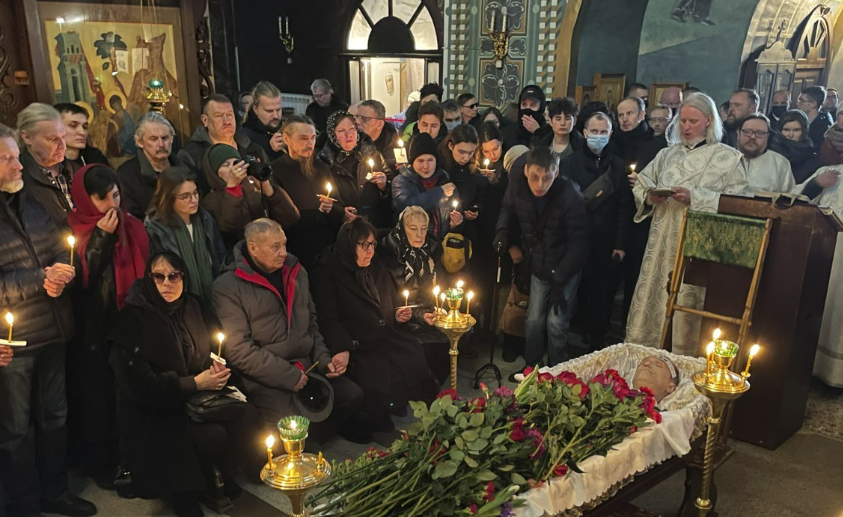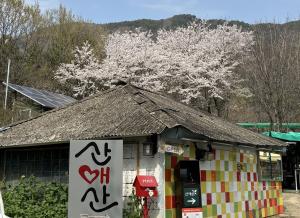 |
| ▲ The Funeral for Navalny, held at a church in the Mariano district of Moscow (Source: Yonhap News) |
On February 16, just one month before the Russian Presidential Election, Alexey Navalny, widely regarded as the 'sole political opponent to Putin,' unexpectedly passed away. Navalny, who had been imprisoned on charges of criticizing the Russian government and involvement in anti- government protests, was held in one of Russia's harshest prisons, the 'Third Penal Colony,' located in the Kharp settlement in the Yamalo- Nenets Autonomous Okrug in Siberia. The Russian authorities perceived Navalny's political activities as a threat, and his sudden death occurred just two months after his transfer to this facility, causing significant shock both domestically and internationally. The mystery surrounding his death continues to fuel ongoing speculation and conflicts.
The suspicions surrounding Navalny's death stem from conflicting narratives between the Russian correctional authorities and Navalny's associates. The Russian correctional authorities announced that Navalny lost consciousness and collapsed while taking a walk in the prison. They claim that an ambulance arrived promptly four minutes after he fell, but unfortunately, he was declared dead around 2:17 p.m. However, Navalny's associates and Western powers raise suspicions of foul play, urging accountability from President Putin and the Russian government. Western media points to Navalny spending approximately 300 days in solitary confinement since his arrest in February 2021 and being transferred to the notoriously harsh Third Penal Colony, as factors influencing speculation about the cause of his death. Recently, reports have emerged that Navalny's associates are anonymously receiving information related to his death through email and social media services.
Meanwhile, Western powers have also expressed anger and shock over Navalny's death. On February 22, during a meeting with Navalny's family in San Francisco, U.S. President Joe Biden expressed his anger, stating, "I admire Navalny's extraordinary courage and his struggle for a free and democratic Russia." Ursula von der Leyen, the President of the European Commission, vowed not to spare efforts to hold Russia accountable for Navalny's death, while UK Foreign Secretary David Cameron declared, "We will consider coordinated responses to Russia with the G7 nations." International leaders, including President Biden, are urging a thorough investigation into Navalny's death. Observers note that these reactions indicate heightened uncertainty about Russia's political future in the wake of Navalny's demise.
The conflict surrounding Navalny's death continues, with ongoing political opposition protests within Russia. After Navalny's funeral was held at a church in the Mariano district of Moscow, his body was laid to rest in a cemetery on the outskirts of the city. The mourning procession persists, and according to Navalny's family, condolences from well- wishers have surpassed 1,000 people. Reuters suggests that if the mourning processions are perceived as politically charged, there is a possibility of police dispersal or arrests. In fact, over 400 mourners attending Navalny's memorial service were reportedly arrested. Additionally, Moscow Times reported that at least six mourners, who were released from a St. Petersburg police detention center, received draft notices. According to Lusit News, one individual claimed they were taken to an office distributing draft notices two hours before release, and they were threatened with a broken finger if they refused to sign. This indicates an expansion of crackdowns against political dissent by leveraging conscription as a form of punishment.
As of now, Russian authorities have not provided any official stance on Navalny's death. The political situation in Russia and its relations with the international community are becoming more complex due to Navalny's demise. The political ramifications are gaining international attention. The situation is gradually becoming more intricate, making it challenging to predict the unfolding events. Navalny's death is considered a significant event that could shape the direction of Russian politics, emphasizing the increased importance of thorough investigation and clarification of the circumstances surrounding his death.
By Shin Min-joo, reporter pinky3167@naver.com






